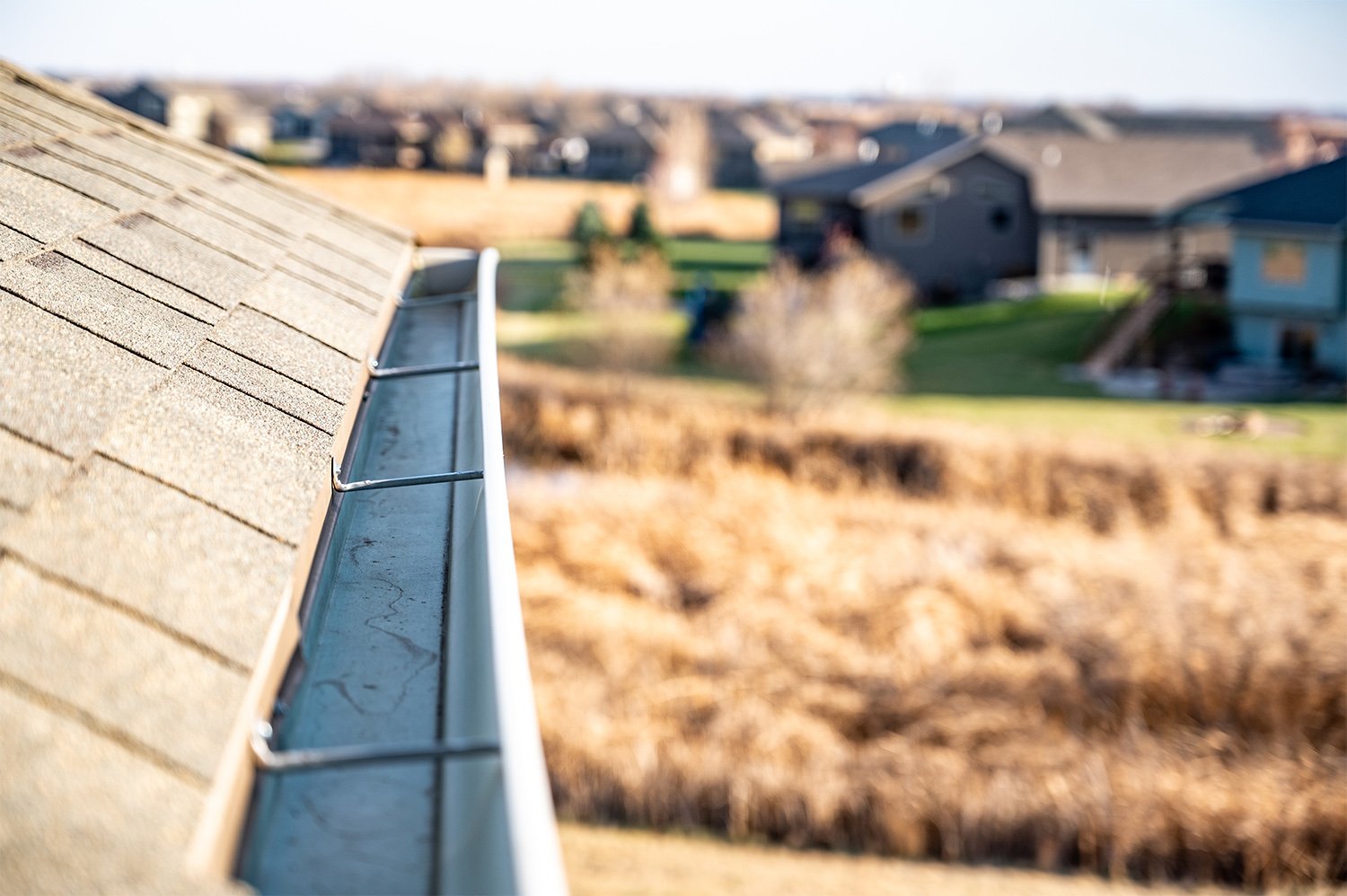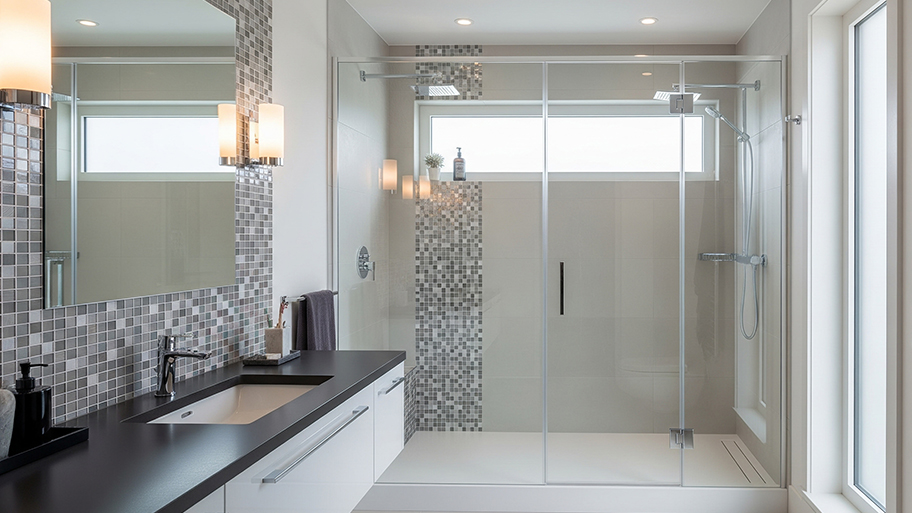
Fire damage restoration costs vary widely based on the extent of the damage. Learn how to assess your home and estimate your total after a fire.
Protect your home against costly and destructive water damage


Water from burst pipes, a leaky roof, or malfunctioning appliances can cause serious damage in a short amount of time. Luckily, you can take some proactive steps to minimize your chances of water damage. Use our nine simple tips for preventing water damage to keep your home safe and dry.
The easiest way to prevent any water damage before leaving for vacation or another extended absence is by shutting off the water at the main valve. This controls the water that enters your home, so be sure to show the other members of your household where it is in case of an emergency. If it’s your first time shutting off the main water valve, test it by turning on a faucet before you leave.
If you want to know how to prevent water leaks in your home, start with strong supply lines. Plastic supply lines break easily and can rupture, so they’re not all that dependable. Grab a flashlight and see what type of supply lines you have on your appliances. If you have any plastic supply lines, it’s wise to upgrade to stainless steel (and relatively cheap, too).
Leaks from malfunctioning appliances can cause serious water damage that you may not notice until it’s too late. Regularly inspecting and maintaining your appliances can keep you ahead of leaks before they have a chance to cause damage.
Here are the main appliances and fixtures to check on:
Refrigerator
Dishwasher
Sinks (and pipes underneath)
HVAC system
Washing machine
Water heater
Shower
Toilet
You’re mostly looking for leaks here, but keep an ear out for any funny noises or other signs of trouble. Should you find anything out of order, contact top appliance repair companies in your area to get it fixed.
If your home gets hit by nasty weather, water can seep into your home through damaged doors or windows. Ensure all seals are intact to keep out any rain, snow, or pipe-freezing winds. Find a local window repair service to take care of any necessary fixes.

You might not think about your gutters very often, but they can cause major water damage if they become blocked. Look for sticks, debris, and leaves that could clog the gutters and flood or overflow. Clean out the gutters to be safe. Having a professional gutter cleaning costs about $160 on average, or you can handle it yourself (with the proper safety precautions, of course).
Also, make sure all downspouts discharge about 10 feet from your home—otherwise, during rain, you could have hundreds of gallons of water flooding dangerously close by. If your downspouts aren’t long enough, fret not: you can rectify this by adding a downspout extension.
Your sump pump kicks into damage control if anything leaks inside your home. It can also be a strong line of defense to prevent flooding if groundwater levels become abnormally high. You’ll want it working properly if heavy rains are predicted or any nearby appliances could potentially leak.
Luckily, it’s pretty easy to check. Simply dump a pail of water in and make sure that the system pumps water back out. A local sump pump repair contractor can assist you if anything is amiss.
This one’s especially important for the winter months, but the same applies year-round. The constant circulating air from your HVAC system will prevent any condensation from causing water damage. In colder months, it’s crucial for keeping your pipes from freezing.
There are many high-tech plumbing devices on the market to prevent water damage in your home. These can sense and shut off leaks to prevent flooding and other water damage. Check your local home improvement store and online to find the newest gadgets that can save you in an emergency.
Water damage can be caused by small leaks that you may not be aware of until it’s too late. A broken pipe that runs behind your walls or under your floors can be leaking for weeks or months before you even know anything is amiss. Keeping a close eye on your water bill can alert you to higher-than-normal usage, which could indicate a hidden leak.
Time is of the essence when you find water damage in your home—act quickly to prevent further, more serious damage. Before doing anything else, locate the source of the water, turn off the water supply, and—if it’s safe to do so—remove as much standing water as possible. For anything more extensive than minor water damage, hire a water damage restoration company to assess the damage.
The first thing you should do to mitigate water damage is immediately stop the water source if you can. Remove all the standing water you can see with towels or pumps and dry the affected areas with fans and dehumidifiers. At this point, you'll likely need to call a professional water damage restoration company to fully restore your home.
A local water damage restoration pro can determine what class of water damage you’re dealing with, whether you need water damage mitigation or remediation, and what restoration you’ll need to return your home to its pre-damage condition. Water damage restoration costs an average of $1,400 to $6,300, depending on the severity of the damage.
It’s important to catch water damage early. The most common signs that indicate you have a moisture problem are rotting, buckling, or peeling surfaces, which show up in 31% of cases. Damp or wet areas are also common indicators at 26.5%, as are staining, discoloration, and odors.
From average costs to expert advice, get all the answers you need to get your job done.

Fire damage restoration costs vary widely based on the extent of the damage. Learn how to assess your home and estimate your total after a fire.

Your dry rot repair cost will depend on factors such as the extent and size of the damage and its location within your home. Here's what you need to know.

Water damage restoration costs depend on the severity of the problem, the type of water, and the length of time the damage has been occurring.

Worried your house has hail-damaged siding? We’ll walk you through how to spot–and deal with—siding damage from hail.

Learn why water is rising through your floor and read our effective solutions to prevent long-lasting water damage.

Learn the top 8 signs of water damage in drywall so you can identify water damage early, prevent costly repairs, and protect your home from further issues.